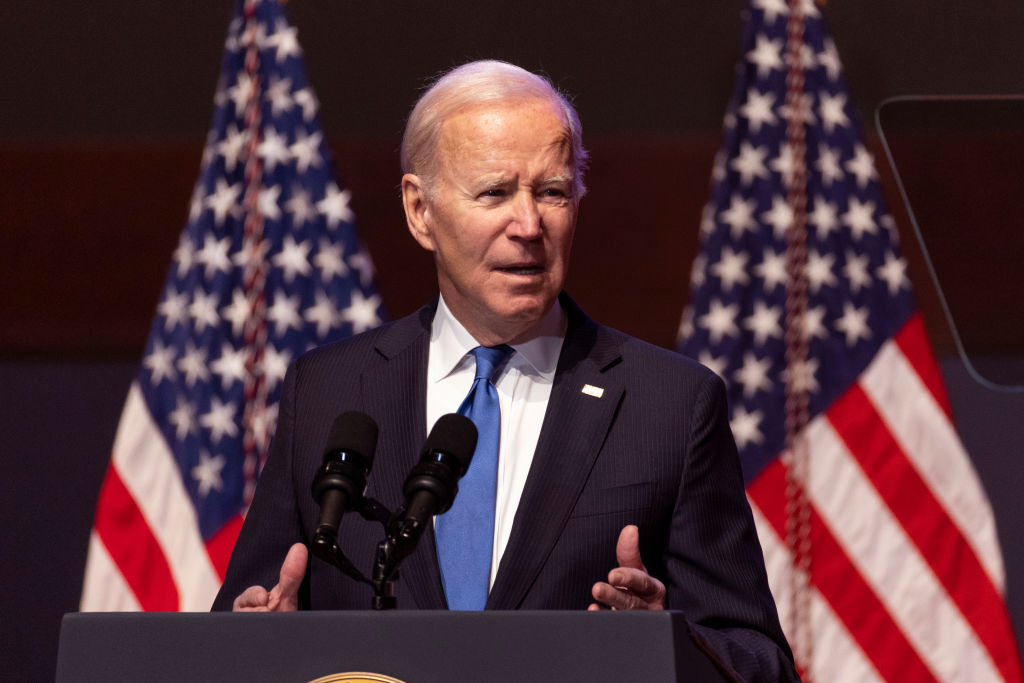Within a week of the announced departure of White House Chief of Staff Ron Klain, President Joe Biden said Thursday top economic adviser Brian Deese is on the way out too.
Biden credited Deese, director of the National Economic Council, with helping craft major pieces of legislation that have defined the 46th president’s time in office to date.
“Brian’s work was critical to the passage of the most significant economic agenda in generations: the American Rescue Plan, which brought our economy back from the brink; the Bipartisan Infrastructure Law [and] the most significant investment in our nation’s infrastructure in generations,” Biden in a statement.
The president also praised Deese for his involvement in “the CHIPs and Science Act, which ensures we make more high-end technology here at home so we can outcompete the world; and the Inflation Reduction Act, which is giving millions of families breathing room, investing in clean energy manufacturing, and addressing the climate crisis.”
The New York Times noted that economists have attributed the 40-year-high spike in inflation the U.S. experienced under Biden to the passage of the $1.9 trillion American Rescue Plan in March 2021.
The legislation included enhanced unemployment benefits, direct deposit monthly child tax credit payments and food stamps, among other programs that some experts contended encouraged people not to return to the workforce, exacerbating labor shortages.
When Biden became president in January 2021, the economy was well on its way to recovery. The unemployment rate had dropped from a pandemic high of 14.7 percent in April 2020 to 6.3 percent. It’s 3.5 percent now.
In a February 2021 opinion piece for The Washington Post, former Clinton Treasury Secretary Larry Summers wrote that passing the American Rescue Plan would “set off inflationary pressures of a kind we have not seen in a generation, with consequences for the value of the dollar and financial stability.”
After it passed, Summers called it “the least responsible macroeconomic policy we’ve had in the last 40 years.”
Further, former Obama administration Treasury Department official Steven Rattner, in a November 2021 article for the Times, identified the American Rescue Plan as the “original sin” leading to the high inflation rate, which spiked at over 9 percent in June and was 6.5 percent last month.
He and Summers, along with “many other” economists, “worried that shoveling an unprecedented amount of spending into an economy already on the road to recovery would mean too much money chasing too few goods,” Rattner explained.
Deese’s predecessor, Larry Kudlow — who served as Donald Trump’s director of the National Economic Council — argued in May that’s exactly what happened.
“The tax hikes and the environmental restrictions [under Biden] are suppressing the supply side of the economy — not enough goods. And the spending increases the demand side of the economy — too much cash,” Kudlow observed.
“If you are going to spend more than you can produce, well, prices have to go up. And the obvious solution is to spend less and produce more.”
Deese said on Twitter that it had been “an unspeakable privilege to serve” the president.
It has been an unspeakable privilege to serve @POTUS.
Thank you:
For putting your trust in me;
For leading us with resolve and integrity; and
For your unwavering vision that we can and will build an economy that works for all Americans. https://t.co/YVwMNSSioH
— Brian Deese (@BrianDeeseNEC) February 2, 2023
The Times reported Biden is likely to replace Deese with Lael Brainard, vice chairwoman of the Federal Reserve, or Wally Adeyemo, the deputy Treasury secretary.
“Other contenders include Bharat Ramamurti, a deputy on the National Economic Council; Gene Sperling, a former director of the council under Presidents Bill Clinton and Barack Obama; and Sylvia M. Burwell, a former Obama aide who is now the president of American University,” it said.
This article appeared originally on The Western Journal.

























 Continue with Google
Continue with Google